Choosing Between Screw and Piston Compressors
Regarding industrial operations, the choice of compressor can influence everything from productivity to energy efficiency. Two popular compressor types—screw and piston—offer different benefits and are suited for various applications. Understanding how each type operates and its ideal use cases can maximise your system’s performance.
In this article, we will compare screw and piston compressors, examining their design, efficiency, and maintenance needs. By the end of our discussion, you’ll have a clearer picture of which compressor type fits your specific demands and how to make a choice that supports your business goals.
Understanding Compressors
A. Definition of Compressors
A compressor is a device that increases the pressure of a gas by reducing its volume. The main function is to take in air or gas at low pressure and compress it at high pressure. This is done using mechanical methods, such as moving pistons or rotating screws. The compressed gas can then be used for various purposes, including powering tools and providing air for different systems.
B. Importance in Different Applications
In manufacturing, they power pneumatic tools and machinery. The automotive industry uses compressors for air conditioning and paint spraying. In construction, they drive equipment like nail guns and heavy machinery. Other sectors, such as food processing and pharmaceuticals, rely on compressors for refrigeration and material handling. Their versatility makes compressors essential for keeping operations efficient across various fields.
Piston Compressors
How They Work?
Piston compressors compress air by moving a piston up and down inside a cylinder. When the piston moves down, it creates a vacuum that pulls air into the cylinder. As the piston moves back up, it compresses the air, increasing its pressure. Once the air is compressed, it exits through an exhaust valve, and the cycle starts again.
A. Types of Piston Compressors
-
Single-stage compressors compress air in one stroke, making them suitable for lower-pressure needs.
-
Two-Stage Compressors: These compress the air twice, first at a low pressure and then at a high pressure, allowing for greater efficiency and higher pressures.
B. Advantages
-
High Pressure: Piston compressors can generate pressures up to 30,000 PSI, making them well-suited for tasks that demand high force or extreme pressure.
-
Long Service Life: These compressors typically have a lifespan of 10 to 15 years.
-
Durability: Piston compressors are built to endure heavy-duty operation and are known for their robustness and long-lasting performance.
-
Versatility: They can accommodate a broad range of air pressures and flow rates, making them adaptable to various applications.
-
Low Maintenance Costs: Piston compressors are relatively inexpensive to maintain, thanks to their simple design.
C. Disadvantages
-
Noisy: Piston compressors are typically louder than screw compressors, which can be an issue in quiet settings.
-
Less Efficient at High Pressures: Their efficiency decreases when used for high-pressure applications.
-
Limited Continuous Use: They can overheat with prolonged use, requiring breaks for cooling.
Screw Compressors
How They Work?
Screw compressors use two interlocking screws that rotate in opposite directions. As the screws turn, they trap and compress air between their threads, creating a steady flow of compressed air—this rotary action results in smoother and more consistent airflow than piston compressors.
A. Types of Screw Compressors
-
Oil-Injected Compressors: These use oil for lubrication and cooling, improving efficiency. However, they can contaminate the air supply with oil if not managed properly.
-
Oil-Free Compressors: These do not use oil in the compression process, making them ideal for applications that require clean air, like food and pharmaceuticals. They tend to have a more complex design.
B. Advantages
-
Higher Efficiency and Performance: Screw compressors operate continuously and efficiently, making them great for high-demand situations.
-
Quieter Operation: They are generally quieter than piston compressors, which is beneficial in noise-sensitive environments.
-
Continuous Operation: Screw compressors can run for long periods without overheating, providing a consistent air supply.
C. Disadvantages
-
Higher Initial Cost: They are typically more expensive than piston compressors.
-
Complex Maintenance: Their design can complicate maintenance, often requiring specialised service.
Comparison of Key Features
1. Efficiency
Screw compressors are generally more efficient than piston compressors. They consume less energy for the same output and provide a steady airflow, making them ideal for continuous operation. Piston compressors may use more power, especially during start-ups and at high pressures.
2. Cost
-
Initial Investment: Screw compressors usually cost more to buy due to their advanced technology, while piston compressors are more affordable.
-
Operating Costs: Although screw compressors have a higher upfront cost, they can save money on operating costs over time due to their efficiency. Piston compressors may incur higher energy bills and repair costs.
3. Maintenance
Screw compressors require more specialised maintenance, including oil changes and rotor inspections. Piston compressors have simpler mechanics, making routine maintenance easier, but they still need regular checks on parts like piston rings and valves.
4. Noise Levels
Screw compressors operate quietly, making them suitable for noise-sensitive environments. Piston compressors are typically louder, especially when they cycle on and off.
Conclusion
The choice of compressor greatly affects productivity and energy efficiency in industrial operations. Piston compressors are durable and effective for various tasks, but they can be noisy and less efficient for continuous use. Screw compressors are more efficient and quieter but come with a higher price tag and more complex maintenance. By assessing your specific needs regarding pressure, noise, and cost, you can make the best choice for your business, ensuring optimal performance and long-term efficiency.
Explore Your Options!
Make an informed decision for your industrial operations by getting quotes on air screw compressors from IndustrySearch. Click below to start comparing and find the best fit for your business!
Get Started with Air Screw Compressor Quotes!
FAQ:
-
What’s the main difference between screw and piston compressors?
Screw compressors use rotating screws for steady airflow and efficiency, while piston compressors use pistons to compress air, which can be less efficient for continuous use.
-
Which compressor is more efficient?
Screw compressors are generally more efficient, especially for high-demand tasks, using less energy and providing consistent airflow.
-
Can piston compressors handle high pressure?
Yes, piston compressors can achieve high pressures, but they may be less efficient than screw compressors at very high levels.

.jpeg)






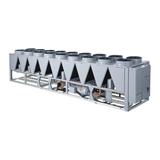
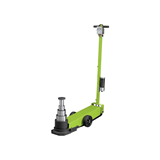
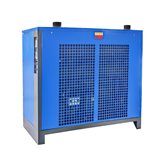

-160x160-state_article-rel-cat.png)

-160x160-state_article-rel-cat.png)

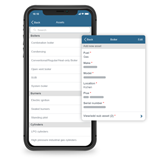

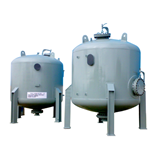
-160x160-state_article-rel-cat.png)
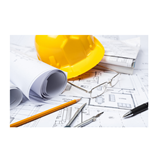
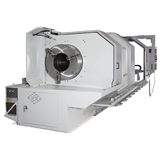
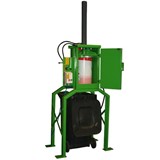

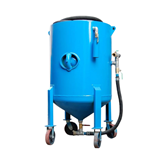

-205x205.jpeg)